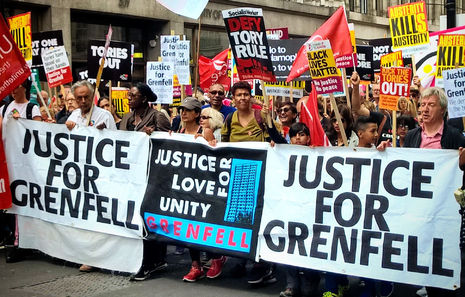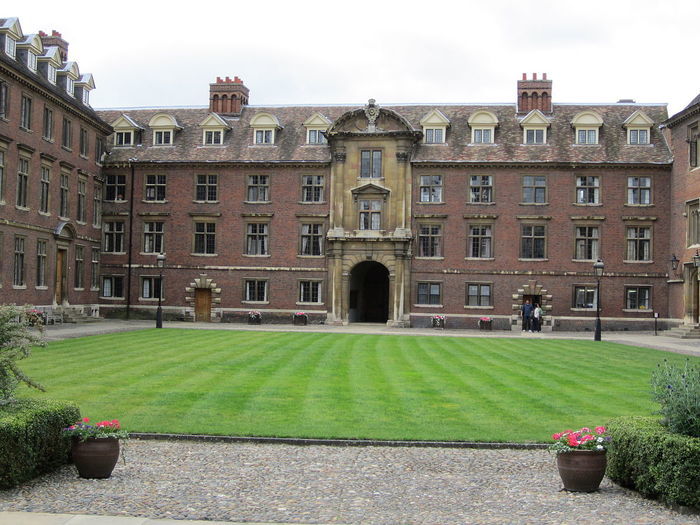The UK must radically change how it views housing
Reflecting on her own experiences, Sharleen Opia argues that the UK needs to re-evaluate its housing policy.

On the 10th of February, Robert Jenrick, the Housing Secretary, announced an extra £3.5billion grant to assist leaseholders in removing dangerous cladding from all high rises above 18 metres, funded partly by a general tax on property developers. This tax will accumulate £2 billion over the next decade, and many property developers would only have to give up a few million pounds a year which, contextually, is underwhelmingly low. It is estimated that 700,000 people live in housing at risk of fire. 462 tower blocks had the same cladding as Grenfell Tower – more than half have yet to be fixed, while thousands carry similar risks. Almost four years after Grenfell, has our government still not learnt their lessons?
The Conservatives have announced that flat owners in medium-rise apartment blocks 11-18 metres tall will be offered loans, instead of grants, to help in the removal of cladding. This is nonsensical. The financial burden should not have been placed on leaseholders. To add insult to industry, property developers have openly admitted to choosing low quality materials, such as potentially dangerous cost-cutting cladding. Rather than introducing more regulations on housing projects, the government continues to prioritise businesses over the safety of citizens.
“The government continues to prioritise businesses over the safety of citizens.”
With house prices currently inflated, homeowners would expect to purchase safe properties, but instead have now been left with the financial burden of fixing homes they have already paid exorbitant amounts to own. A lot of leaseholders are first-time buyers, millions of whom were left unable to sell their homes. Additionally, many were denied mortgages if they failed to prove that their flats met fire safety measures, the cost of which they would have to personally finance. On the 24th of February the government voted down an amendment which would have banned the financial burden of cladding remediation being placed on leaseholders.
Leaseholders should not be faced with the choice between spending money in order to make their homes safe and living everyday in fear of their hazardous housing. The framing of safety as a luxury that has to be bought is a pervasive narrative that I personally refuse to accept. The day after the Grenfell fire I remember watching the news – one of the residents being interviewed noted there were multiple issues with the building that their housing association had refused to address.
This resonated with my personal experiences of living in social housing. Our housing association ignored pleas to fix the lift, despite many people with mobility issues living on high floors. The lift has been broken for months at a time. Our housing association told us to ‘open the window’ when there was a structural issue causing leakage which rendered our flat a biologically hazardous environment. This was not taken seriously until we investigated it ourselves. Every winter we have to contact the housing association due to issues with our boiler. Plumbers have told us our boiler material is cheap and poor quality. Electricians have raised similar concerns. I am grateful to have a roof over my head, but professionals constantly alerting us to the fact that the home we live in was made with little regard for our safety is alarming. I believe safety should be at prioritised while building homes, rather than later on. Especially in the UK, safety and comfort should be abundant and accessible to all.
Let’s not pretend that this is a problem all countries face. In Vienna, 62% of housing is subsidised social housing. The famous and stunning Alt-Erlaa housing complex was built 40 years ago with the intention of making luxury affordable to everyone. The low house prices in Vienna are partly enabled by decentralised housing policies financed by income tax, corporation tax, and housing-specific contributions made by all employed residents. Renters’ rights are a top priority for the government and homeowning is not glorified in the way it is in the UK. The idea that it is impossible for us to prioritise safety, affordability, and vibrancy in the homes we build is a myth. Our current housing situation is the product of a series of choices by those in power which dictate who financially benefits from the systems in place – and whose quality of life falters in return.
“The idea that it is impossible for us to prioritise safety, affordability, and vibrancy in the homes we build is a myth.”
Wider questions about the housing industry, the quality of homes, and the government’s role in regulating industries that offer vital services must be considered. After Grenfell, the conversation should have been directed towards the implications of outsourced social housing. We must consider the undeniable conflict of interest between government outsourcing and providing for vulnerable, low-income households.
The cladding that was used on Grenfell Tower was sold by the American company Arconic. Since the fire, emails have been uncovered revealing how some employees knew the cladding was dangerous but continued to sell it regardless. Corporations consistently put innocent lives in danger in the name of profit. The government is supposed to be the one entity that prevents them from doing so, holds them accountable, and protects the lives of its citizens. Instead, it offers generous grants to private companies, a luxury not afforded to those living in unsafe conditions. We must also acknowledge that cladding was not the only issue with Grenfell Tower: poor quality insulation materials, wooden balconies, and other fire hazards are rife in apartment buildings across the UK – the government has taken no steps to address such issues. The extent to which housing is made safe by companies is dictated by the parameters set by the government. A government that prioritises profit over standard of living will never put adequate measures in place to provide safe housing for everybody.
It has also been uncovered that various Conservative donors have links to companies involved in the cladding scandal. We must therefore be wary of the increasing power companies wield to influence our political climate and diminish our quality of life. Until everybody is housed safely, we must consider whether or not we really live in a humane society.
 News / Cambridge academics stand out in King’s 2026 Honours List2 January 2026
News / Cambridge academics stand out in King’s 2026 Honours List2 January 2026 Comment / Plastic pubs: the problem with Cambridge alehouses 5 January 2026
Comment / Plastic pubs: the problem with Cambridge alehouses 5 January 2026 News / Cambridge businesses concerned infrastructure delays will hurt growth5 January 2026
News / Cambridge businesses concerned infrastructure delays will hurt growth5 January 2026 News / AstraZeneca sues for £32 million over faulty construction at Cambridge Campus31 December 2025
News / AstraZeneca sues for £32 million over faulty construction at Cambridge Campus31 December 2025 Interviews / You don’t need to peak at Cambridge, says Robin Harding31 December 2025
Interviews / You don’t need to peak at Cambridge, says Robin Harding31 December 2025









